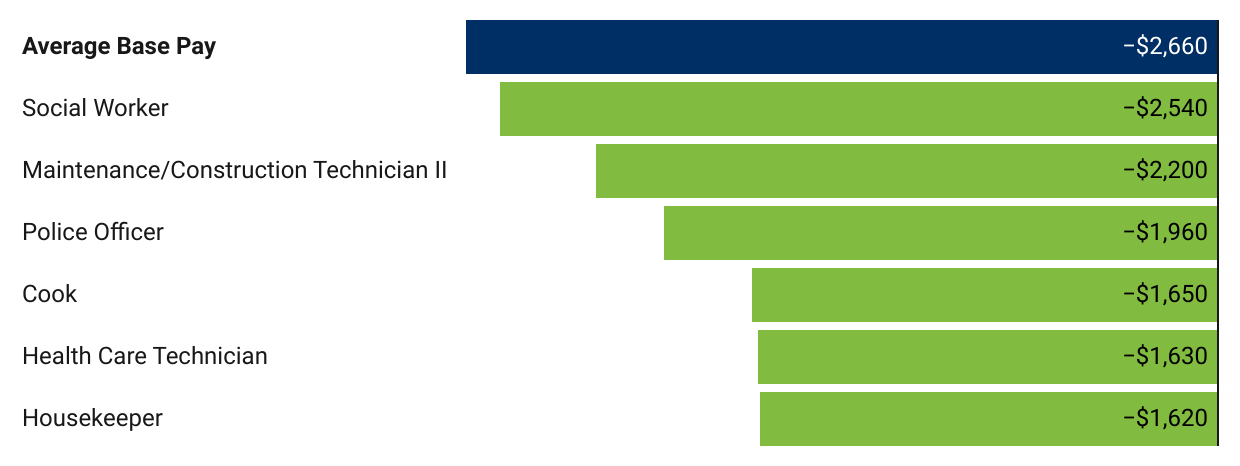
Executive Summary: North Carolina Budget Report 2022-23
This is the executive summary of our longer budget report. Read the full report here.
The state budget passed for the 2022-23 fiscal year fails to adequately address the impacts of inflation. Even with federal aid and a robust recovery driving higher than expected revenues, the state budget fell short of meeting the challenges created by inflation running at a 40-year-high in several ways:
- The real investment in things like education and public safety fell when factoring in rising prices.
- It diverted over $4 billion into reserves without appropriating them, leaving known needs unmet.
- It forced state employees and teachers to endure a real pay cut by not keeping wages in line with inflation, contributing to thousands leaving public service.
- It relied on a process with no real public input, no room for improvement once the budget was unveiled, and that never fully accounted for what it would take to even maintain current levels of service.
NC lawmakers sideline more than $4 billion in 2022-23 budget
Inflation isn’t just a pocketbook problem, it’s a budget problem as well. Governments’ buying power is impacted just like consumers by rising prices and, factoring in those increased costs, the level of real investment in most major budgetary areas actually went down.
The choice to let real investment fall is all the more baffling given the amount of money that budget writers had at their disposal. Federal stimulus, which fueled a faster than expected economic recovery, meant state revenues came in billions of dollars over expectations.
Instead of spending those funds to address pressing needs in our state, legislators chose to sideline billions of an appropriated money in a variety of reserve, including:
- $1.6 billion in the savings reserve
- $1 billion in an inflation reserve
- Over $700 million in the State Emergency and Disaster Response Fund
All told, the General Assembly diverted more than $4.1 billion from the General Fund into reserves with no immediate plan for how those funds will be used. Those funds wouldn’t cover all of the pressing needs in North Carolina, but they’d go a long way.
NC public employees’ raises have been wiped out by inflation
This year’s budget left state employees exposed to the pain of inflation. The modest raise that state employees got in this year’s budget has been more than wiped out by inflation, leaving them with less real income than a year ago.
Annual inflation in the south ran at 9.4 percent from when the last budget was passed to when the current budget took effect, but most state employees only saw a 4.5 percent wage increase. That gap means many state employees effectively lost more than 2.5 weeks of pay to rising prices.
Falling real wages contributed to a significant loss of public servants as the state struggled to compete with other employers. The biggest losses were in Public Safety and Health and Human Services, along with more than 11,000 unfilled positions in K-12 education as the start of the 2022 school year approached.
Budget shortcomings come from bad budgeting practices
The material shortcomings of this budget have roots in how it was put together. Legislative leaders chose not to embrace good budgeting practices, such as:
- Starting with a base budget that reflects what it would take to continue existing levels of service given changes in costs and in populations to be served by specific programs.
- Providing opportunities for the public to provide input into the budgeting process.
- Allowing legislators to offer amendments and the space for a robust debate over the final budget.
The result was a budget that failed to meet the challenges posed by inflation and will leave many public servants and services worse off.


